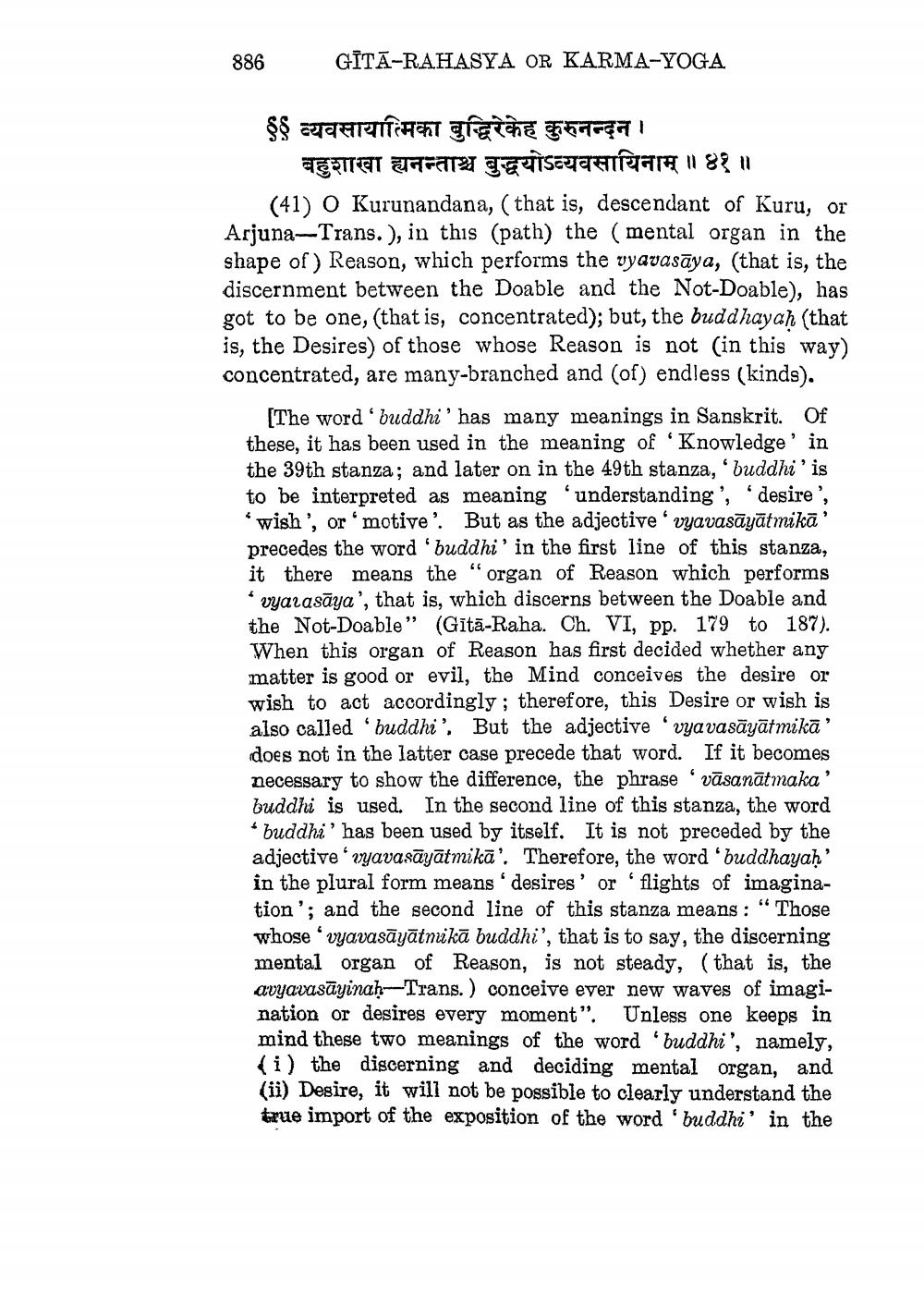________________
886
GĪTĀ-RAHASYA OR KARMA-YOGA
SS व्यवसायात्मिका बुद्धिरेकेह कुरुनन्दन । बहुशाखा ह्यनन्ताश्च बुद्धयोऽव्यवसायिनाम् ॥ ४१ ॥
(41) O Kurunandana, (that is, descendant of Kuru, or Arjuna-Trans. ), in this (path) the (mental organ in the shape of) Reason, which performs the vyavasaya, (that is, the discernment between the Doable and the Not-Doable), has got to be one, (that is, concentrated); but, the buddhayah (that is, the Desires) of those whose Reason is not (in this way) concentrated, are many-branched and (of) endless (kinds).
"C
[The word buddhi' has many meanings in Sanskrit. Of these, it has been used in the meaning of 'Knowledge' in the 39th stanza; and later on in the 49th stanza, 'buddhi' is to be interpreted as meaning 'understanding', 'desire' 'wish', or 'motive'. But as the adjective' vyavasāyātmikā precedes the word 'buddhi' in the first line of this stanza, it there means the organ of Reason which performs vyavasaya', that is, which discerns between the Doable and the Not-Doable" (Gita-Raha. Ch. VI, pp. 179 to 187). When this organ of Reason has first decided whether any matter is good or evil, the Mind conceives the desire or wish to act accordingly; therefore, this Desire or wish is also called 'buddhi'. But the adjective 'vyavasāyātmikā’ does not in the latter case precede that word. If it becomes necessary to show the difference, the phrase 'vāsanātmaka' buddhi is used. In the second line of this stanza, the word * buddhi' has been used by itself. It is not preceded by the adjective' vyavasāyātmikā". Therefore, the word 'buddhayaḥ' in the plural form means' desires' or 'flights of imagination'; and the second line of this stanza means: "Those whose 'vyavasayatmika buddhi', that is to say, the discerning mental organ of Reason, is not steady, (that is, the avyavasayinaḥ-Trans.) conceive ever new waves of imagination or desires every moment". Unless one keeps in mind these two meanings of the word 'buddhi', namely, (i) the discerning and deciding mental organ, and (ii) Desire, it will not be possible to clearly understand the true import of the exposition of the word 'buddhi' in the
3




